SplashBI Platform Overview
Built for Scale. Engineered for Control. Powered by Intelligence.
SplashBI is a unified enterprise analytics platform with live database reporting, a governed semantic layer, and dynamic cloud connectors.
With V6.1, customers get in-product AI guidance, with SplashAI available for conversational insights that work alongside dashboards.
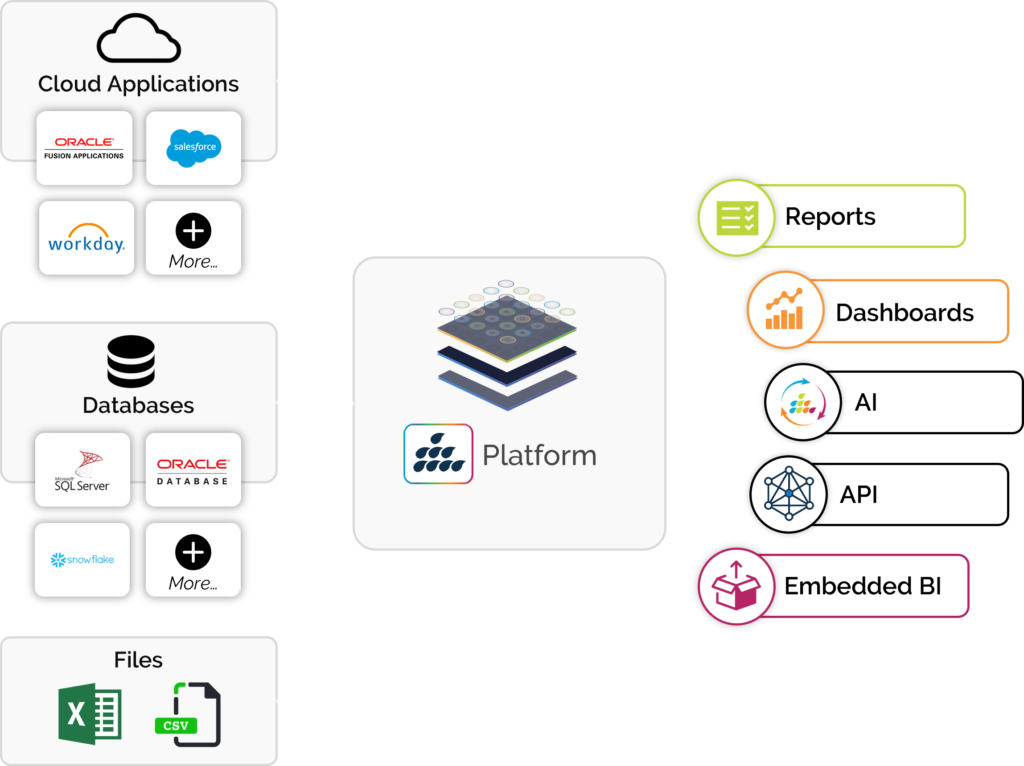

Our Most Powerful Release Yet
SplashBI Tahoe (V6)
— Unified Analytics with AI Built Into the Platform
SplashBI Tahoe (v6) transforms enterprise reporting with a streamlined analytics platform for Finance, HR, and Supply Chain. With v6.1, embedded AI capabilities support faster insight, clearer understanding, and more confident decision-making across dashboards and collaboration workflows.
What’s New in SplashBI Tahoe V6.1
v6.1 expands how users interact with data by embedding intelligence directly into dashboards and collaboration workflows.
Analytics Co-Pilot
An embedded co-pilot that assists users during analysis, helping streamline exploration and discovery directly within dashboards.
Microsoft Teams Integration
Access conversational insights and interact with analytics directly within Microsoft Teams, extending analytics conversations into everyday collaboration workflows.
AI-Powered Chart Intelligence and Drilldowns
Automatically explain what is happening and why, and drill deeper into underlying data and key drivers directly from chart elements.
Conversational Analytics
Ask natural language questions and explore insights directly within dashboards using SplashAI.
In-Platform Help with SplashAI
Embedded guidance within the platform helps users navigate features, understand workflows, and complete tasks such as building and refining dashboards, supporting self-service analytics.
How Tahoe Transforms Your Experience
Unified Workspace
Access reports, dashboards, pipelines, and data loaders from one seamless interface.
Modern Experience
Enjoy a WCAG-compliant UX, personalized layout controls, and faster navigation.
Smarter Excel Connect
Refresh multiple reports, apply custom styling, and automate Excel-based workflows with ease.
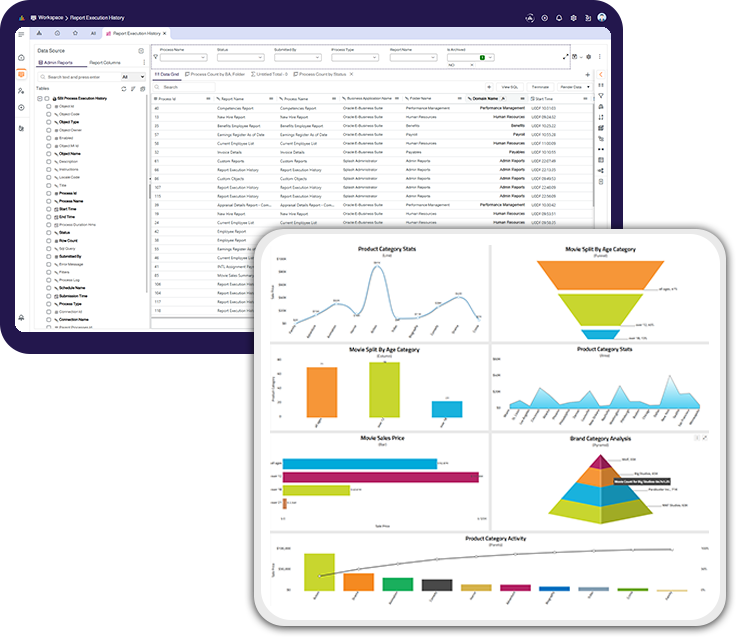
Self-Service Reporting & Analytics
Live, Direct Query Execution from Source Systems
— No Replication Required
SplashBI provides real-time access to operational databases using direct JDBC connections, eliminating the need for ETL/ELT jobs or data duplication. Reports and dashboards are built on top of live queries, reflecting your most current data at all times.
Native JDBC connectivity to Oracle, SQL Server, Snowflake, Redshift, and more
Real-time query passthrough engine with parameter binding, pagination, and throttling
No data movement ensures accuracy, compliance, and reduced latency
Semantic logic layer simplifies query construction and reuse across reports
Role-based access with dynamic filtering, metadata controls, and built-in audit trails
SplashAI

SplashAI enables conversational interaction with enterprise analytics in a governed and secure way.
Conversational Intelligence Layer for the SplashBI Platform
SplashAI is an embedded intelligence capability within the SplashBI platform, designed to work with your enterprise data models, security framework, and governance policies. It enables users to ask complex, domain-specific questions using natural language and receive trusted, contextual, and visualized results directly within analytics workflows.
SplashAI brings insights closer to where teams work through Analytics Co-Pilot within dashboards and Microsoft Teams, enabling an omnichannel analytics experience without switching context.
Translates natural language questions into governed analytics queries to deliver relevant, contextual results.
Tied to your metadata layer for context-aware responses
Audit-logged, configurable for environments with data compliance requirements
Enforces row-level and role-based access policies automatically
Supports querying across datasets and domains based on configured enterprise data models.
Cloud Data Pipelines
ELT-Ready for Cloud App Integration at Scale
Most SaaS platforms restrict direct query access. SplashBI solves this by offering configurable, API-based data pipelines that support both real-time and scheduled data extraction, transformation, and load.
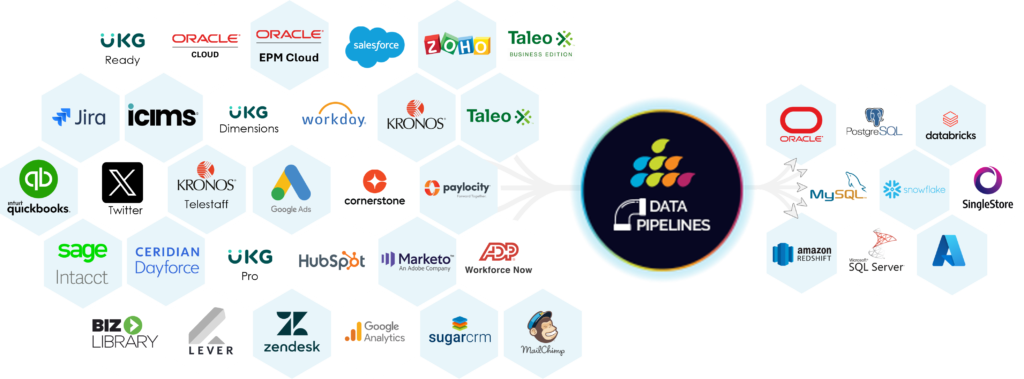
Integrate Your Data
Data Integration Across Database, Files, & Cloud Services
SplashBI’s integration layer supports live, data warehouse: From structured databases to spreadsheets and REST APIs, you can ingest and query enterprise data wherever it lives.
Supports JDBC, APIs, CSV, and Excel for flexible data access across structured sources and flat files—ensuring seamless integration into your workflows.
Boosts performance with efficient connection pooling that reduces database load. Admins can customize pool size, timeouts, and access controls to match workload needs.
SplashBI connects natively to platforms like Snowflake, Databricks, Oracle, and MySQL—so you can skip complex setup and focus on insights, not integrations.
Build Your Own Cloud Connector
API-Based Integration Without Custom Coding Overhead
SplashBI’s Cloud Connector Builder lets teams create custom connectors visually—no coding needed. Define endpoints, auth methods, and payload mapping. Schedule runs, handle errors, and control access with role-based permissions. Custom, simplified.
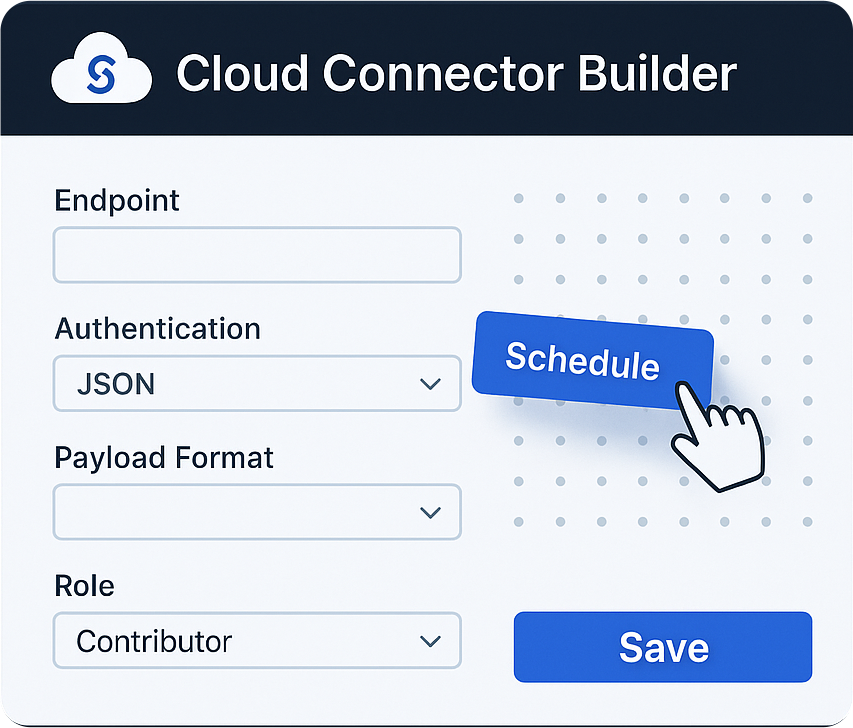
XL Connect
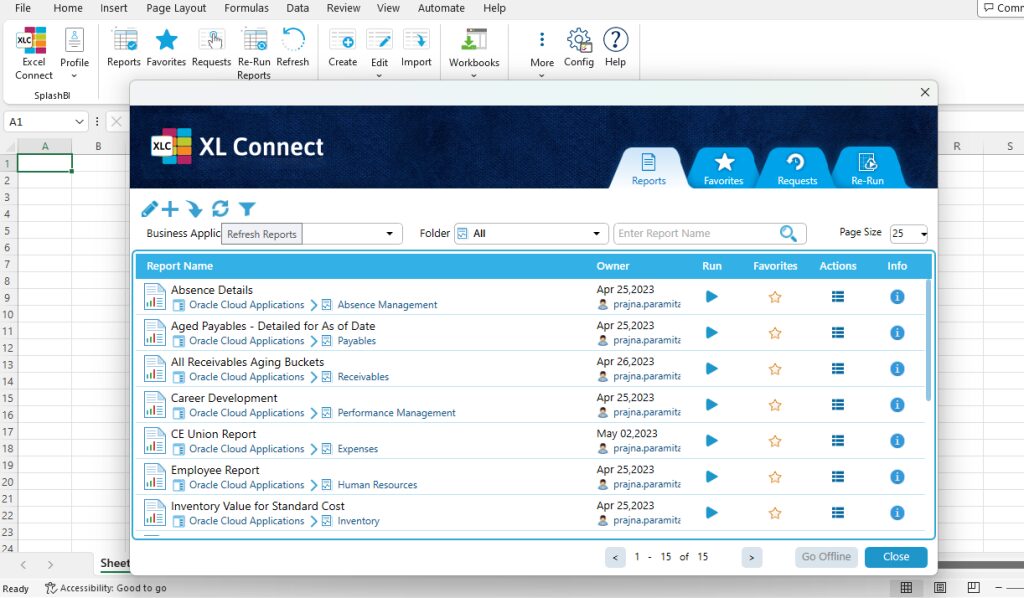
Real-time Reporting, Excel Simplicity.
Experience swift, user-friendly, and secure data analysis – directly to Excel in minutes.
User-friendly Interface
With XL Connect, no technical expertise is needed to generate, customize, and refresh real-time data reports.
Excel-Powered Data
Leverage the familiarity and power of Excel for secure, real-time data access using XL Connect.
Platform Essentials
Technical Capabilities That Drive Enterprise-Grade Deployment
The engine under the hood that your admins and architects will appreciate.
Federated authentication using enterprise identity providers with configurable session policies.
Send personalized reports by combining static inputs with dynamic SQL-based filters.
Centralized logging for user activity, report runs, system changes, and access attempts.
Isolated customer environments within one platform instance with secure resource sharing.
Automate reports with time-based, calendar, and event-driven scheduling.
Control access across the platform with fine-grained authorization rules.
Ingest files with schema validation, error handling, and mapping tools.
Map visual data relationships with reusable joins and semantic tagging.
Work on reports in draft mode and publish only when finalized — without affecting production.



